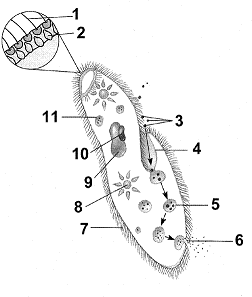Brain tissue is useful for studies of vesicular transport because
a. many brain diseases involve mutant vesicular transport.
b. synaptic vesicles are abundant in the brain and can be isolated in large quantities for biochemical analysis.
c. the mechanisms of vesicle transport and fusion are unique to neurons.
d. All of the above
Ans: d. All of the above
You might also like to view...
You are testing a new chemotherapy drug that blocks a kinase in the cytoplasm that helps carry signals to the nucleus causing the cell to divide. If you expose cells to the drug at the same time you administer a hormone that should cause the cell to divide, which of the following steps would be blocked?
_____ Receptor activation _____ Signal transduction _____ Activation of transcription factors _____ Cell division
Among the following lineages, which has the largest number of Hox genes when all Hox gene clusters
are taken into account?
a. cnidarians b. cephalochordates c. vertebrates d. arthropods e. eurochordates
Refer to Figure 26-1. The function of the structure labeled 6 is:

a. food intake.
b. digestion.
c. waste elimination.
d. water discharge.
e. asexual reproduction
In the deductive approach to scientific thought processes, we begin with ____ and make ____ based on that
information. a. premises; observations b. observations; premises c. observations; conclusions d. observations; inductions e. premises; conclusions